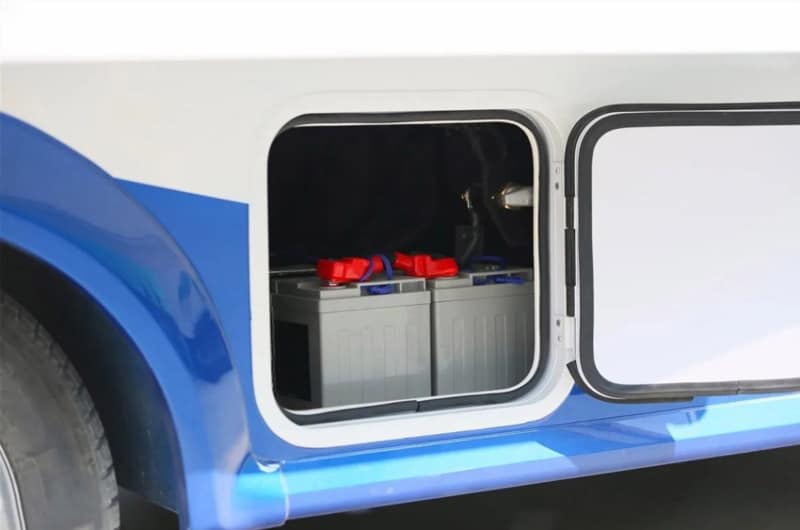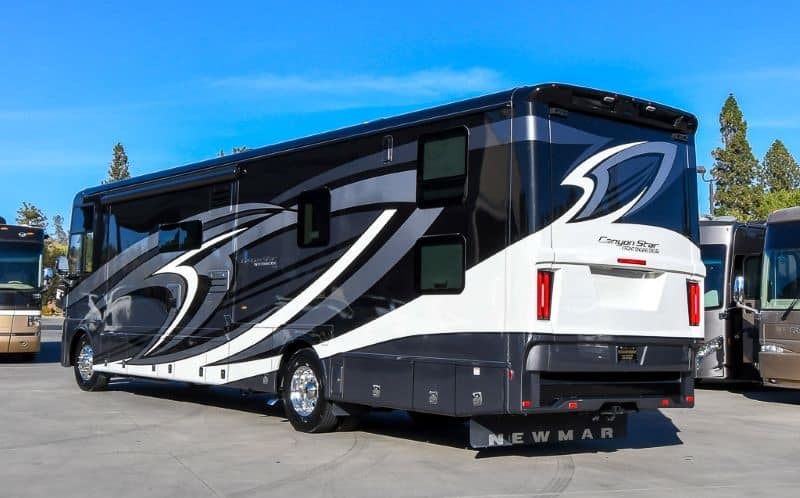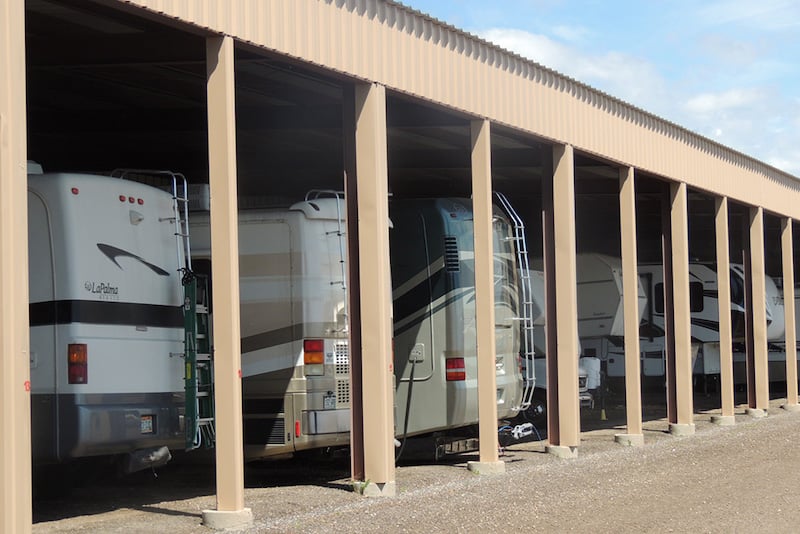Understanding how long an RV battery lasts is important knowledge for successful RVing. House batteries are one of the most critical components of your RV. They provide power to electrical systems, including the lights, water pump, refrigerator, and other components. So it’s essential to know how long RV batteries will last and what you can do to extend their life.
How Long Will the 3 Most Common Types of RV Batteries Last?
Let’s explore how long the three most common types of RV batteries last.
1. Lead Acid RV Batteries
Lead acid batteries are the most popular RV batteries. They’re also the least expensive, which is why most RV manufacturers typically install them in new RVs. In addition, they last around three to five years, making them an excellent option for most RVers.
However, lead acid batteries require more maintenance than other types of batteries. You’ll need to check the water levels and keep the terminals clean to prevent corrosion. In addition, lead acid batteries are heavier than other batteries, so you’ll need to ensure your RV can support the weight. But with proper care, lead acid batteries can provide years of trouble-free service.
2. Absorbed Glass Mat (AGM) Batteries
Absorbed Glass Mat (AGM) batteries are the gold standard for RV batteries. They’re more expensive than lead-acid, but these RV batteries last much longer.
AGM batteries will typically last between five to seven. The reason for their longevity is that AGM batteries are sealed and maintenance-free. The seal prevents spills or leaks, so adding distilled water to the cells is unnecessary.
AGM batteries can also be discharged and recharged more times than other types of batteries, making them ideal for deep-cycle applications.
3. Lithium Ion
Lithium ion RV batteries are quickly becoming the go-to batteries for many RVers. They’re the most expensive compared to lead acid and AGM batteries but last between five and seven years.
A lithium battery is a deep-cycle battery that uses lithium Iron Phosphate (LiFePO4) instead of lead to store electrical energy. Lithium is a much lighter metal than lead, so lithium batteries are significantly lighter than their lead-acid counterparts.
What gives lithium ion batteries an edge over AGM batteries is that they can be recharged many more times before they need to be replaced (usually over 2,000 times).
How Often Will Your RV Battery Need to be Charged?
How often your RV battery needs charging depends on your usage. If you use your RV occasionally, you may only need to charge your battery occasionally. However, if you use your RV regularly, you should keep them charged up as much as possible to avoid long charging times.
What Happens If You Completely Discharge Your Battery?
RV batteries provide the juice for living on the road. Completely discharging your battery will shorten its lifespan and make it difficult to recharge. Lead acid batteries rely on a chemical reaction to create electricity.
When you discharge a lead acid battery, the plates inside can become coated with sulfate. If you don’t remove the sulfate, it’ll eventually harden, making it impossible for the battery to continue the chemical reaction that generates electricity. As a result, keeping your battery charged adequately is vital to ensure a long lifespan.
How Much Battery Power Do I Need to Boondock?
RV batteries are essential for boondocking, providing power to run appliances and lights when there are no hookups to the grid. But how do you know how much battery power you need to boondock?
The answer depends on a few factors.
- How long do you plan to be without hookups?
- What appliances will you run?
- Do you have solar panels to supplement your battery power?
Most RVers need at least one battery to boondock for a weekend. However, you may need two or more RV batteries to last longer for extended trips or if you plan to run several appliances.
If you want to extend your battery power with solar panels, you’ll need to factor in the size of your solar panel array and the average sunlight hours.
Can You Run Your RV AC on Battery Power?
RVers are always looking for ways to save energy and extend the life of their batteries. One question often debated is whether you can run your air conditioner on battery power. The answer, unfortunately, is not a simple one.
It depends on several factors, including the size of your battery, the amps required to run the air conditioner, and how long you need to run it. RV air conditioners are notoriously power-hungry, so you’ll need a capable battery (or multiple batteries) to run one.
Even with solid battery power, you won’t be able to run the A/C unit all day. Eventually, the battery will need to be recharged.
Here are some tips to ensure your RV battery lasts as long as possible when running the air conditioner.
- Charge the battery fully before using the air conditioner.
- Use the lowest setting on the air conditioner to conserve energy.
- Use the air conditioner only when necessary, such as during the day’s hottest hours.
- Turn off lights and other appliances when running the air conditioner to reduce the overall load on the battery.
- Invest in a high-quality battery charger to keep the battery charged and extend its life.
- Monitor the battery level and turn off the air conditioner before the battery is completely drained.
- Use an A/C soft start device to conserve energy when using your air conditioner.
The 3 Ways On Charging My RV Batteries?
You need to know how to charge your RV batteries to extend their life and get the most use out of them. Unfortunately, improper charging is one of the leading causes of battery failure. The good news is that it is easy to charge your RV batteries using these simple ways.
1. Electrical Connection
The most common way to charge RV batteries is to hook up to shore power. The electrical connection charges the batteries, which helps them last longer. Plus, it’s good practice to keep your batteries topped off. This way, you’ll always be ready for whatever the road throws your way.
2. Generator
Another way to charge your RV batteries is by using a generator. This is an excellent option if you’re boondocking and don’t have access to shore power. Watch the generator’s fuel level so you don’t run out of power.
3. Solar Systems
You can install solar panels on your RV to provide a renewable and environmentally friendly power source. When properly sized, a solar panel can provide enough power to charge your battery in just a few hours. In addition, solar panels will trickle-charge your batteries, so they last longer.
Will My House Battery Charge While Driving?
Many current model-year Class A, B, and C motorhomes now starting to come with a second alternator. While you travel, this secondary alternator charges your house batteries while the primary device powers the electronics in the automotive section. In the past few years, some motorhome and camper van manufacturers started offering the second alternator as a standard or optional feature.
Hybrid technology taught the RV industry how to transfer the energy from the brakes and route it to the house batteries. It doesn’t help much on the open road, but the stop-and-go on the surface streets can give you that little extra power you may need.
7 Tips to Make Your RV Battery Last Longer
RV batteries are essential for powering your RV, but they can be expensive to replace. Luckily, there are tips you can practice to make your battery last longer and stay in good shape. And remember, if you take care of your batteries, they’ll take care of you.
1. Keep up with Maintenance
One of the best ways to keep your RV battery in good shape is to keep up with regular maintenance. This includes checking the water level, cleaning the terminals, and ensuring the battery is charged.
- Clean the battery regularly for corrosion.
- Add water to lead acid batteries as needed.
- Only use distilled water to top off the battery.
- Check the battery’s voltage regularly and recharge it as needed.
2. Don’t Discharge a Lead Acid Battery Below 50%
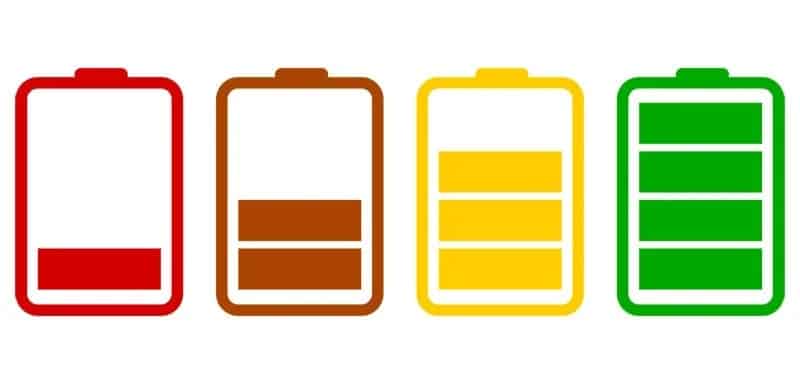
You can extend a lead acid battery life by not discharging it below 50%. When a battery is discharged too low, sulfate crystals form on the lead plates, restricting the flow of electrons and reducing the battery’s capacity. The more you discharge the battery below 50%, the more the crystals build, eventually killing the battery.
3. Don’t Overcharge
If you overcharge RV batteries, you can shorten their lifespan. This is because batteries produce hydrogen gas when you charge them. However, too much hydrogen gas can cause the battery to explode. So how do you avoid overcharging RV batteries? The best way to ensure you charge the battery properly is to use a battery charger with an automatic shut-off feature.
4. Don’t Undercharge
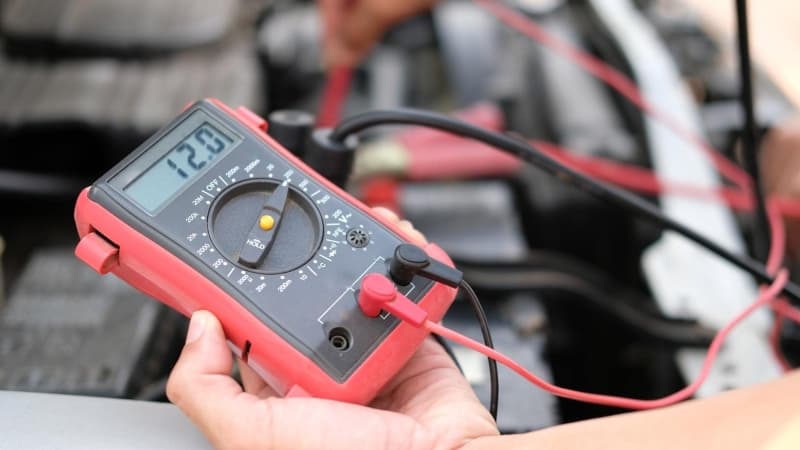
Conversely, it’s just as important not to undercharge RV batteries as to avoid overcharging. Unfortunately, undercharging is a common mistake RVers make. When you keep batteries undercharged, the batteries will fail due to sulfation. The best way to avoid undercharging is to plug batteries into an external power source.
5. Don’t Overrun Your A/C
The purpose of RV batteries is not to run your air conditioner for long periods. Running your A/C off batteries is one of the quickest ways to drain them. Batteries boost power when needed, not to run large appliances. Instead, use a generator or shore power to keep your RV cool and comfortable.
6. Watch the Heat and Humidity
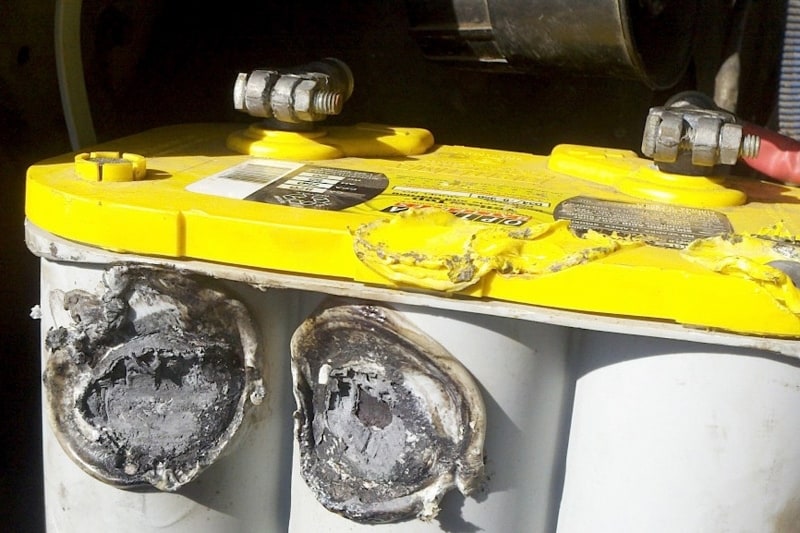
RV batteries can withstand short periods of heat and humidity, but they will degrade at prolonged high temperatures. So if you are RVing in an area with extreme heat and humidity, it’s important to watch the batteries closely.
Watch for signs of corrosion or overheating, and keep them clean and dry. If the battery shows signs of degradation, it’s crucial to replace it as soon as possible. By doing so, you can help to ensure your RV has a reliable power source.
7. Monitor Parasitic Loads
Parasitic loads are devices that draw power from the RV battery even when they are turned off. These devices can include electric steps, illuminated panels, and electric slide-outs. It’s vital to monitor parasitic loads to avoid battery drain and permanent damage, especially when your RV is not in use.
Should You Wire Multiple Batteries in Series?
If you need more battery power than your RV provides, you may wonder if you can wire multiple batteries in series. There are two ways to wire batteries: in parallel or in series. The type of batteries you have will determine how you should wire them.
For example, you must connect 6-Volt RV batteries in series (positive to negative) to form a 12-Volt battery. But if you have 12-Volt batteries, you must wire them in parallel (positive to positive and negative to negative) to avoid supplying the RV with too much voltage.
Combining batteries in parallel increases amps, not voltage, so your RV can draw more power without damaging the electrical system.
If You Dry Camp Often, Consider a Generator
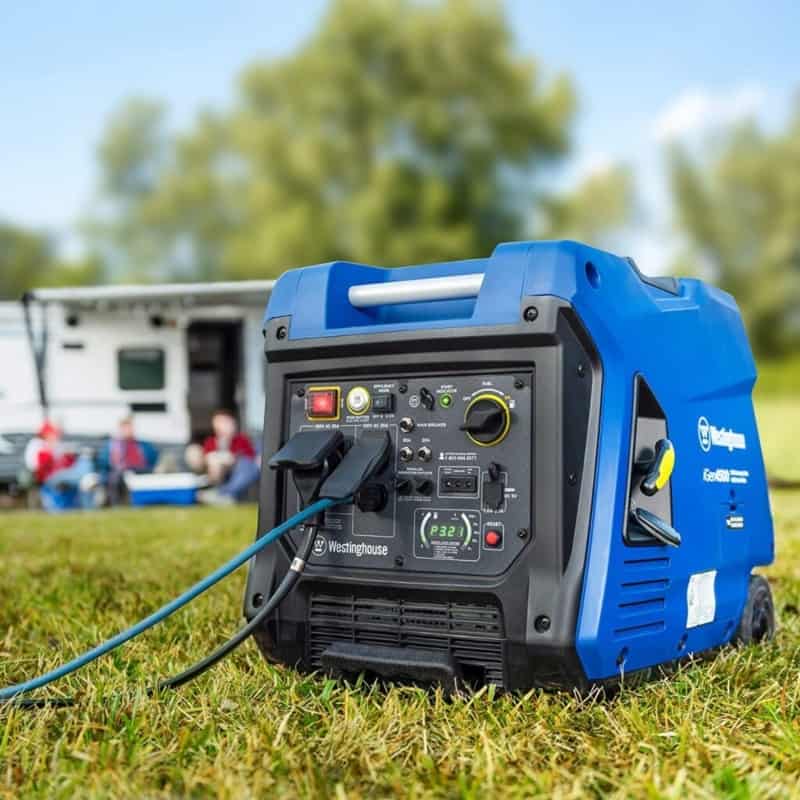
If you frequently dry camp, consider a generator. RV generators come in various sizes and can power appliances like the air conditioner, fridges, and water heaters. A generator can also take the strain off RV batteries and help to extend their lifespan.
Know How Long Your RV Battery Will Last
RV batteries are a crucial part of RVing, and it’s essential to know how long they’ll last. If not monitored, batteries can drain quickly. Batteries can be expensive to replace, so you want to extend their lifespan. Following the tips in this article, you can help ensure your RV batteries will last as long as possible for a worry-free RV life.
About the Author:

Mike Scarpignato is an avid RVer and outdoorsman. He travels with his wife Susan in their Class A 2021 Thor Challenger and their Class C 2008 Gulf Stream Conquest. Mike is also the owner of RVBlogger.com, TravelTrailerPro.com, and RV Camping Magazine.

